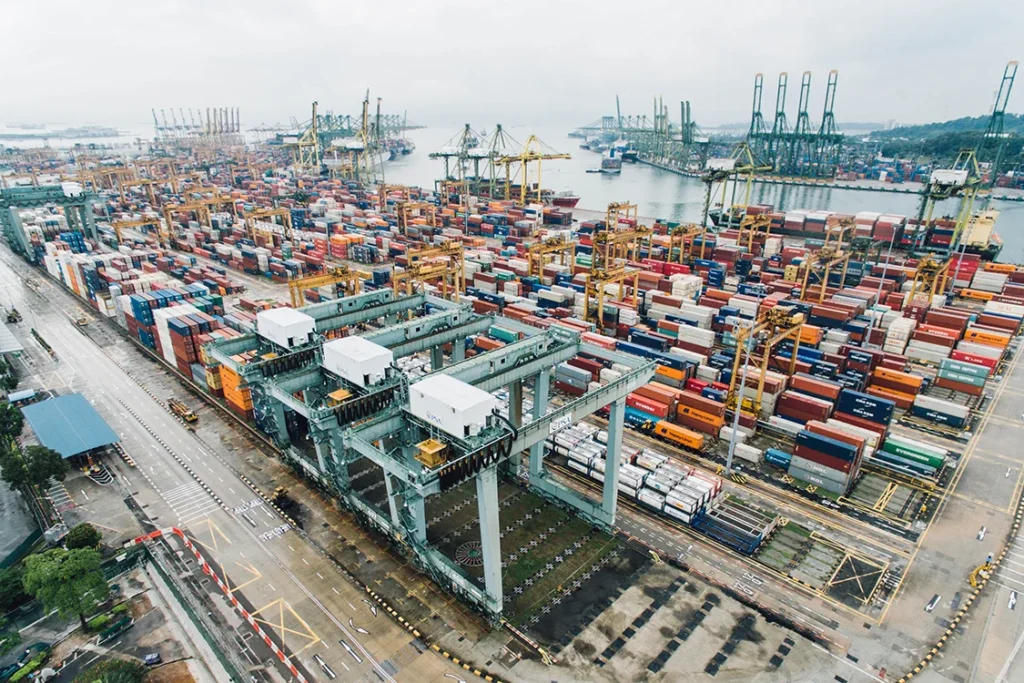As the world strives towards net zero, energy-intensive industries like mining, construction, chemicals, energy and other resources are under increasing pressure to measure and report on a raft of sustainability indicators and reduce their impact – fast.
The ISS newsletter aims to help you navigate the evolving landscape by bringing you the latest information and digital tools to help you stay a step ahead on sustainability reporting, compliance rules, climate and nature disclosures, transition planning, scenario analysis and more.
In this issue, we outline the key dates and new legislation to keep top of mind and share case studies and a comprehensive guide explaining how to track Scope 1, 2 and 3 emissions. If you have questions or need more information, please get in touch.
NEWS
Key sustainability reporting dates you need to be ready for
Across the world, governing organisations and market sentiment are aligning to demand sustainability reporting transparency. In 2024, a new era of legislated accountability has arrived with a host of new regulations coming into force. This is the year that sustainability moves from voluntary to mandatory, with significant real-world consequences as new rules roll out.
ISS is here to help with our comprehensive guide to sustainability reporting for the industrial sector.
| Name: | ISSB: International Sustainability Standards Board |
| Overview: |
|
| Status: | With the first standards (IFRS S1 and IFRS S2) in effect from 1 January 2004, it is now for jurisdictions to decide if and how they will incorporate these standards into national law or for companies to adopt the ISSB standards voluntarily. |
| Name: | CSRD: EU Corporate Sustainability Reporting Directive |
| Overview: |
|
| Status: | The CSRD is in effect from 1 January 2024, with reports to be published in 2025. It is estimated to apply to 50,000 large EU companies and 10,400 foreign companies. |
| Name: | SEC: US Securities and Exchange Commission |
| Overview: |
|
| Status: | There is no official release date for the new rule. The SEC has received over 16,000 comments on the proposed changes and appears to be doing due diligence on these. This will likely delay the release of the final rule until sometime in 2024 and align the implementation of the rule with other reporting standards in 2026. |
| Name: | GRI: Global Reporting Initiative |
| Overview: |
|
| Status: | Revised GRI standards came into effect on 1 January 2023. The GRI Topic Standard for Biodiversity and the GRI Sector Standard for Mining will be published in early 2024. |
| Name: | TNFD: Taskforce on Nature-related Financial Disclosures |
| Overview: |
|
| Status: | Final recommendations published on 18 September 2023 and TNFD will encourage and support voluntary market adoption. Until disclosures move from voluntary to mandatory by each jurisdiction, the TNFD will publish an annual status update of adoption. The January 2024 update details commitments by 320 companies across 46 countries to date. |
- Safeguard Mechanism Reforms (Australia) Currently covers Australia’s top 215 high emitting facilities which must keep emissions below a legislated baseline. All facilities must apply for a new site-specific emissions intensity by 30 April 2024.
- EU’s Carbon Border Adjustment Mechanism (CBAM) The CBAM transition period began on 1 October 2023, with first submissions of CBAM reports due January 2024. CBAM takes full effect in 2026, with annual declarations, certificates and payments becoming mandatory.
- EU Battery Passport The EU Battery Regulation entered into force in August 2023, replacing the EU battery directive, with the digital battery passport becoming mandatory from February 2027.
CASE STUDY

How to accurately track Scope 1, 2 and 3 emissions
Across industries, organisations are under mounting pressure to deliver finance-grade sustainability reporting. Under the ISSB’s Sustainability Disclosure Standards, new global baselines for reporting are now in force, and if organisations can’t comply, they may face stiff penalties.
While the new standards will not be mandated in every country, it’s predicted that most companies will voluntarily adopt them. Indeed, some are already taking proactive steps to report on sustainability metrics in response to community or investor pressure.
Yet, manual processes and lack of the right data and digital tools means many industrial organisations aren’t equipped to collect and analyse the data needed to report on Scope 1, 2 and 3 emissions.
In this case study, we detail worked examples of how using digital tools like our Sustainability Tracker (ST) solution enables energy-intensive industrial organisations to track and report emissions, water and energy consumption, cut costs, streamline processes and produce auditable reports that meet the latest regulatory requirements.
RESOURCE

Scope 3 emissions are the next big industrial sustainability priority
Global regulations and markets now demand transparency of emissions across the supply chain. Beyond direct emissions, energy-intensive industries must report on indirect Scope 3 emissions and reduction strategies. Here’s what you need to know.
With Scope 3 emissions accounting for the vast majority of emissions in many industries, it is critical to accurately track them to both hit reduction targets and meet compliance obligations. Many organisations lack the data and tools they need.
Drawing on more than a decade of experience in process engineering, data-led software and ESG reporting in the industrial sector globally, in this comprehensive guide we explain:
- What are Scope 3 emissions?
- How do they impact industrial organisations?
- Why is Scope 3 measurement important and urgent?
- What are the Scope 3 reporting requirements?
- How can you calculate Scope 3 emissions for the industrial sector?
ISS is here to help you understand and meet your obligations
Accurate sustainability reporting and compliance cannot be managed with manual, outdated, error prone and easily manipulated spreadsheets. Digital tools are required for transparency, auditability, automation and digital taxonomy compliance.
Stay ahead of fast-evolving sustainability compliance with Sustainability Tracker (ST), a proven sustainability analytics solution designed for complex industrial processes, backed by experts to help you understand your reporting obligations, mitigate risks and meet sustainability targets.
Learn how ISS can help you track and analyse your sustainability indicators, and minimise emissions, energy, water and waste across your supply chain.

